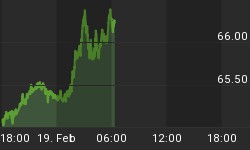Warren Buffett also frets on this.
Not bad, for government work.....
The BIS derivative survey reveals that, as of Dec 2003, the global derivatives market amounted to $234 trillion of notional contracts, of which some 75% - or $175 trillion - are interest rate-related (and 80%, or $142 trillion, of those OTC).
Risk - much of it unquantifiable and much of it, no doubt in the hands of those who either can't understand it at all, or who are too reliant on flawed models, which are usually oblivious to non-linear, network effects - now stands some 2.7 times higher than it did when LTCM blew up in 1998.
Over the year, the 1% Fed, the 0% BOJ, the 2% ECB and the 0-point-something SNB - in the pursuit of the harmful myth of 'macro-economic stability' - managed to encouraged a massive 41% jump in outstandings - a climb fully 3 ½ times faster than the change in OECD total GDP, which was estimated to have been $3.12 trillion (a figure itself flattered greatly by a decline in the USD which helped take 'real' growth from a paltry 2% to a nominal USD rate of 11.9%).
It also means that the Global Casino Economy racked up a whisker under $22 in interrelated risk transactions for every $1 of estimated growth in its Physical counterpart in 2003 - surely testimony to a financial system spinning wildly out of control.
Perhaps even more incredibly, that $234 trillion now amounts to $36,750 - or close to 10 months' income for the median household in the US - for every last one of the estimated 6.3-odd billion men, women and children on the planet, many of whom would be lucky to earn that sort of money in the course of three whole generations!
O tempora! O mores!

















